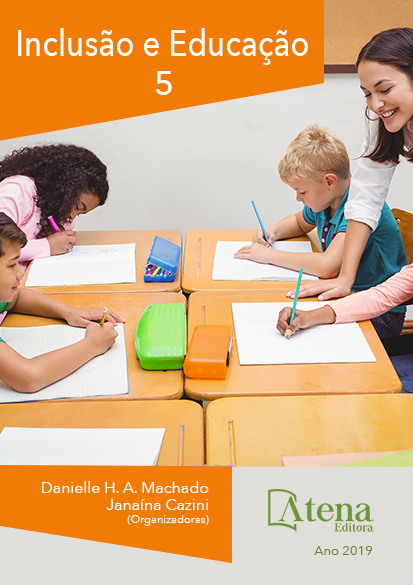
ATENDIMENTO EDUCACIONAL HOSPITALAR E DOMICILIAR: NARRATIVAS AUTOBIOGRÁFICAS DA ESCOLARIZAÇÃO NA INFÂNCIA FRENTE AO ADOECIMENTO CRÔNICO
Viver a infância com uma doença
crônica é deparar-se com incertezas, medos e
limitações impostas pelos tratamentos de saúde,
passando ser necessárias adaptações na rotina
da vida da criança. Assim, atividades comuns à
infância passam por readequações, dentre elas
estudar. O atendimento educacional hospitalar
e domiciliar surge na perspectiva de garantir o
direito de crianças e adolescentes continuarem
estudando, para tanto o poder público passa a
implementar classes hospitalares e domiciliares.
Nosso trabalho de pesquisa busca refletir acerca
da escolarização de dois jovens que (con)
viveram com o adoecimento crônico na infância
e seu processo de escolarização frente ao
atendimento educacional hospitalar e domiciliar
por meio de narrativas autobiográficas.
Fundamentamos nossos estudos nos
princípios teórico-metodológicos da pesquisa
(auto)biográfica em educação, na psicologia
narrativa e teorias que abordam questões da
educação no contexto hospitalar. As narrativas
autobiográficas foram produzidas por meio da
entrevista narrativa, como fonte e método de
pesquisa, inspirando-nos nas proposições de
Passeggi (2011, 2014, 2016), Ferrarotti (2014)
e Jovchelovitch e Bauer (2002). As narrativas
emergem como promotora de aprendizagens
autobiográficas obtidas durante o adoecimento.
Os participantes atravessaram a infância até a
juventude desenvolvendo aprendizagens a partir
das experiências vividas com o adoecimento.
Mostraram-se resilientes e mantiveram firmes
no proposito de continuar estudando. As
narrativas autobiográficas sinalizam que é
possível conciliar o tratamento de saúde e
a escolarização, o atendimento educacional
hospitalar e domiciliar, configurando-se como
um serviço promotor de resiliência e de
ressignificação do adoecer, e a escola comum
como um lugar de superação, conquistas e
possibilidades.
ATENDIMENTO EDUCACIONAL HOSPITALAR E DOMICILIAR: NARRATIVAS AUTOBIOGRÁFICAS DA ESCOLARIZAÇÃO NA INFÂNCIA FRENTE AO ADOECIMENTO CRÔNICO
-
DOI: 10.22533/at.ed.33919150119
-
Palavras-chave: Atendimento educacional hospitalar e domiciliar; narrativas autobiográficas; adoecimento crônico; infância.
-
Keywords: Hospital and home educational attendance; autobiographical narratives; chronic illness; childhood
-
Abstract:
Living childhood with a chronic
disease is facing with uncertainties, fears and
limitations imposed by the health treatments,
situation which requires necessary adaptations
in the routine of the child life. Thus, activities that
are common to childhood undergo adjustments,
among them, studying. The hospital and home
educational attendance come from the perspective of guaranteeing the right of children
and teenagers to continue studying, so that the public power begins to implement
hospital and home classrooms. Our research aims to reflect on the education of two
young people who lived with chronic illness at childhood and their schooling process
in front of the hospital and home educational attendance through autobiographical
narratives. We based our studies on the theoretical and methodological principles
of autobiographical research in education, in narrative psychology and theories that
approach education issues in the hospital context. The autobiographical narratives were
produced through the narrative interview, as a source and method of research, inspired
by the proposals of Passeggi (2011, 2014, 2016), Ferrarotti (2014) and Jovchelovitch
and Bauer (2002). The narratives emerge as a promoter of autobiographical learning
obtained during illness. Participants went through childhood to youth developing
learning from experiences with illness. They were resilient and held steady for the
purpose of further study. The autobiographical narratives indicate that it is possible to
reconcile health care and schooling, hospital and home educational attendance, as
a service that promotes resilience and resignification of the illness, and the common
school as a place of overcoming, achievement and possibilities.
-
Número de páginas: 15
- Andréia Gomes da Silva


